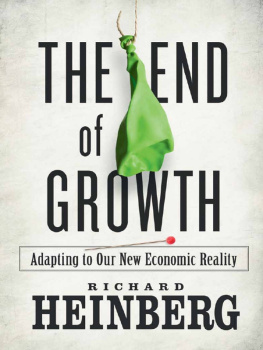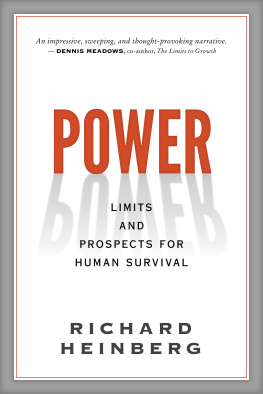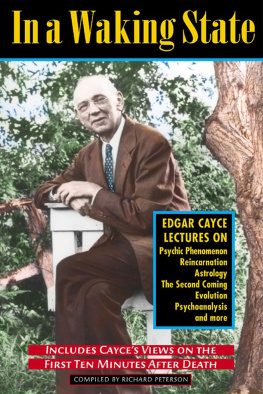Richard Heinberg - Peak Everything: Waking Up to the Century of Declines
Here you can read online Richard Heinberg - Peak Everything: Waking Up to the Century of Declines full text of the book (entire story) in english for free. Download pdf and epub, get meaning, cover and reviews about this ebook. year: 2010, publisher: New Society Publishers, genre: Politics. Description of the work, (preface) as well as reviews are available. Best literature library LitArk.com created for fans of good reading and offers a wide selection of genres:
Romance novel
Science fiction
Adventure
Detective
Science
History
Home and family
Prose
Art
Politics
Computer
Non-fiction
Religion
Business
Children
Humor
Choose a favorite category and find really read worthwhile books. Enjoy immersion in the world of imagination, feel the emotions of the characters or learn something new for yourself, make an fascinating discovery.

- Book:Peak Everything: Waking Up to the Century of Declines
- Author:
- Publisher:New Society Publishers
- Genre:
- Year:2010
- Rating:3 / 5
- Favourites:Add to favourites
- Your mark:
- 60
- 1
- 2
- 3
- 4
- 5
Peak Everything: Waking Up to the Century of Declines: summary, description and annotation
We offer to read an annotation, description, summary or preface (depends on what the author of the book "Peak Everything: Waking Up to the Century of Declines" wrote himself). If you haven't found the necessary information about the book — write in the comments, we will try to find it.
Richard Heinberg: author's other books
Who wrote Peak Everything: Waking Up to the Century of Declines? Find out the surname, the name of the author of the book and a list of all author's works by series.
Peak Everything: Waking Up to the Century of Declines — read online for free the complete book (whole text) full work
Below is the text of the book, divided by pages. System saving the place of the last page read, allows you to conveniently read the book "Peak Everything: Waking Up to the Century of Declines" online for free, without having to search again every time where you left off. Put a bookmark, and you can go to the page where you finished reading at any time.
Font size:
Interval:
Bookmark:
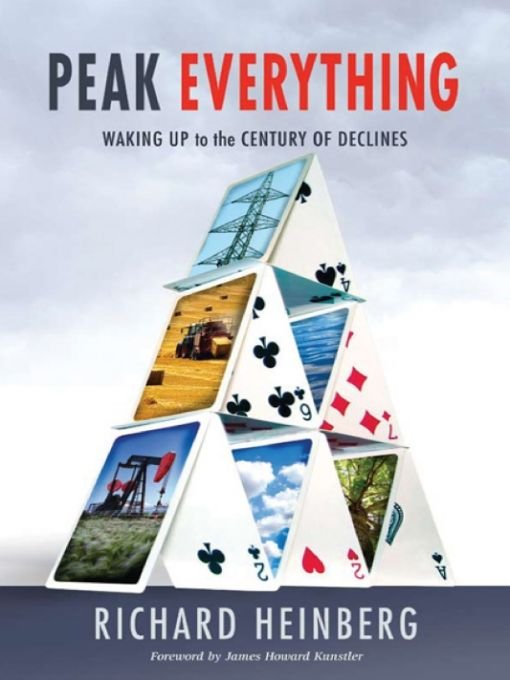
If humans survive the ongoing catastrophe that is this culture, it will be in great measure due to people like Richard Heinberg, who have the courage to directly face our predicament and the honesty to clearly yet gently describe our alternatives. Heinbergs work is always both inspirational and educational, and Peak Everything is no exception. This book should be required reading at all high schools and colleges, for all activists, and for all policy-makers.
There are few harder questions than the ones Richard Heinberg takes on in Peak Everything. Fortunately, he addresses them with his customary fearlessness, intellectual rigor and good sense. More than anyone else Ive encountered, Heinberg has an answer to the most fundamental question of all; How shall we go on from here. Reading this, I can believe there is hope that we can.
Peak Oil is a great threat to our way of life, and Richard Heinberg is one of the worlds best-known writers and analysts of the subject. In Peak Everything, Heinberg gives us a series of provocative essays about the profound individual and global implications of Peak Oil.
With Peak Everything, Richard Heinberg is once again on the cutting edge. We are all indebted to him for helping us understand our 21st cenury world.
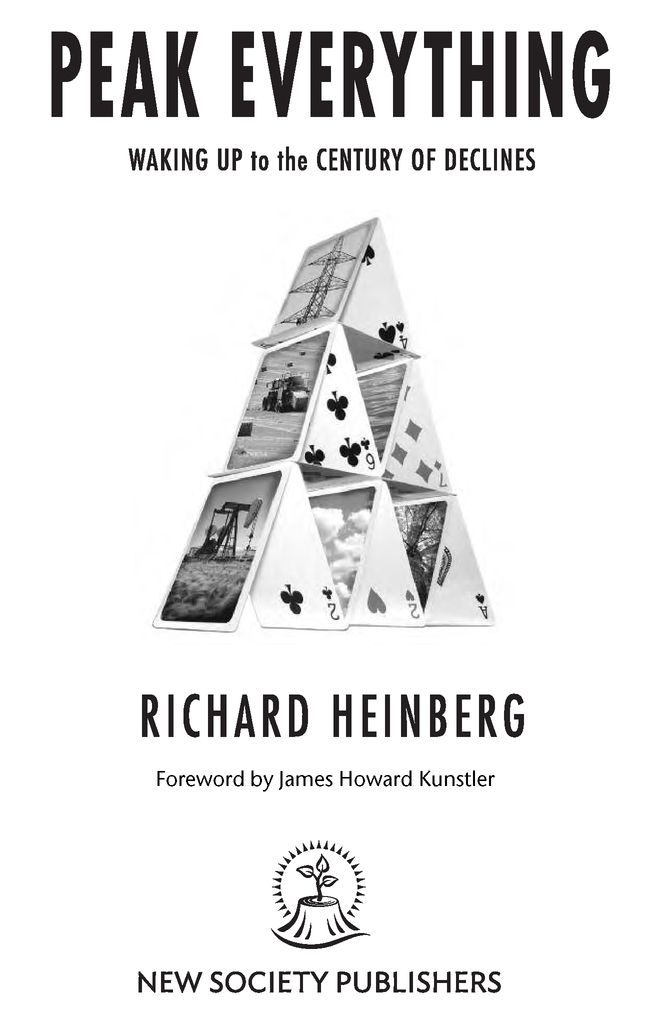
Font size:
Interval:
Bookmark:
Similar books «Peak Everything: Waking Up to the Century of Declines»
Look at similar books to Peak Everything: Waking Up to the Century of Declines. We have selected literature similar in name and meaning in the hope of providing readers with more options to find new, interesting, not yet read works.
Discussion, reviews of the book Peak Everything: Waking Up to the Century of Declines and just readers' own opinions. Leave your comments, write what you think about the work, its meaning or the main characters. Specify what exactly you liked and what you didn't like, and why you think so.

